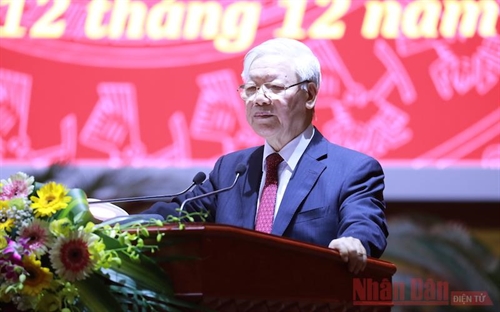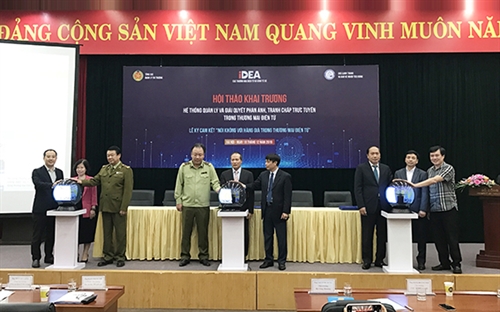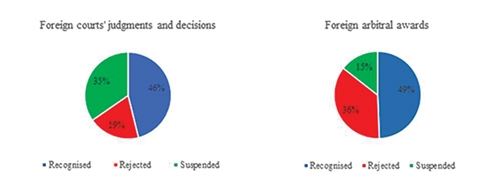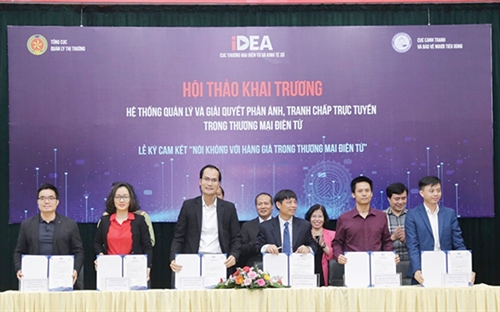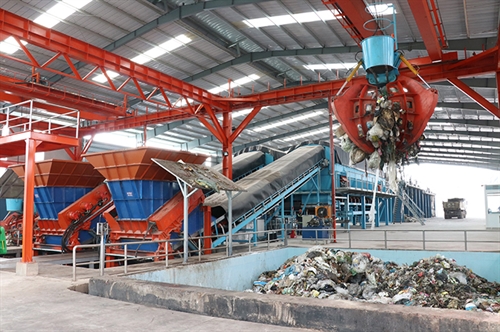Although there are no landmark or breakthrough changes in the 2020 Law on Enterprises, it still provides necessary and timely amendments and supplements, making it easier for businesses and investors as well as state management agencies to navigate. In this article, the author only discusses and clarifies the new basic provisions on joint-stock companies of the 2020 Enterprise Law in order to raise awareness about and help improve effectiveness of enforcement for this type of company.
Pham Quy Dat[1], LL.M., and Nguyen Duc Anh[2], LL.M.
Overview of revised provisions on joint-stock companies
Objective
According to the general objective of the Enterprise Law Project (amended),[3] amendments and supplements to provisions on joint-stock companies (JSCs) are all for certain specific goals, which are “improving the protection of the legitimate rights and benefits of investors, shareholders, members of enterprises; enhancing corporate governance that meets regional and international good practice standards; and raising investor protection ranking by at least 20 levels (according to the World Bank ranking).”[4]
In addition, the revision of the “state-owned enterprises” concept to institutionalize the Party’s viewpoints in Resolution 12/NQ-TW dated June 3, 2017, of the 5th plenum of the XIIth Party Central Committee, on continued restructuring, renovation and improvement of efficiency of state-owned enterprises (Resolution 12/NQ-TW)[5] leads to a case where a JSC is a state-owned enterprise and requires specific provisions on JSCs falling into this category.
Inheritance and development
The Enterprise Law Project (amended) continued to inherite and promote the positive results and effects of the reforms in full realization of freedom of business rights in accordance with the principle that enterprises are entitled to do business in all sectors that are not prohibited or restricted by law in the 1999, 2005 and 2014 Law on Enterprises (LoE); and to ensure the complete and consistent implementation of the Enterprise Law’s reforms associated with the implementation of Government Resolutions 02/NQ-CP and 19/NQ-CP on major tasks and solutions to improve business environment and national competitiveness, Resolution 35/NQ-CP on enterprise support and development up to 2020 and Resolution 139/NQ-CP promulgating an action program to cut costs for enterprises.”[6]
Based on that viewpoint, the Enterprise Law (amended) inherits the provisions that create basic characteristics of a joint-stock company as well as the structure promulgating legal issues of this type of company in previous versions.
These amendments primarily aimed at creating favorable conditions for JSCs to mobilize resources to invest in their production and business, and for shareholders to exercise their rights; raising accountability of company managers; and adding specific regulations applicable to state-owned JSCs.
Main amendments and supplements
Compared to the 2014 LoE, there are four new articles and a total of 66 articles on JSCs in the 2020 LoE. Of the four articles added, only one is totally new (Article 161 on Auditing Committee), while the other three are more detailed provisions on existing issues (Article 129 on procedures for private offering and transfer of bonds; Article 130 on decision on private offering of bonds or technical separation; and Article 139 on General Meeting of Shareholders). Although all provisions on JSCs of the 2014 LoE were modified when they are admitted to the 2020 LoE, some terms have been only edited in terms of wording but still help clarify and explain the content.
The revised provisions on JSCs of the 2020 LoE can be divided in to the following main groups:
- Those creating favorable conditions for companies to mobilize resources to invest in their production and business;
- Those for exercising shareholders’ rights;
- Those for improving corporate governance quality to meet international standards; and,
- Those relating to state-owned JSCs.[7]
One of the main features of JSCs is that they can issue bonds and other types of securities
In order to make it easier for JSCs to mobilize resources to invest in production and business, the 2020 LoE adds “joint-stock companies can issue stocks, bonds and other types of securities” to the general provisions for this type of company in Article 111. Although this provision is not totally new,[8] it not only amplifies the right of JSCs to issue different types of securities, but also reaffirms that issuing bonds and other types of securities is one of the main features of JSCs. This provision is more general than that of the 2014 LoE.
Provisions on private JSCs issuing private bonds
The 2020 LoE changes Article 127 of the 2014 LoE to Article 128 with an important subject about private bonds. It also adds two articles (Article 129 and 130) to enumerate the issuance of private bonds for JSCs that are not public companies, including provisions on (i) issuance conditions, (ii) conditions of purchasers, (iii) order and procedures for offering and transfer, and (iv) authorization to decide on private offering of bonds. The 2019 Securities Law already provides for private placement of bonds by public companies, securities companies and non-public securities investment fund management companies. Therefore, for the first time ever, a LoE creates a separate legal basis for private placement bonds by non-public JSCs. Of course, in order to unify awareness and implementation, the Law lets the Government decide on the type of bonds, order and procedures for private bond issuance and trading, information disclosure, and international market issuance (Article 129.5). Currently, conditions, order and procedures of corporate bonds issuance are provided by the Law on Securities and Decree 163/2018/ND-CP on issuance of corporate bonds. The revision of Article 127 of the 2014 LoE is aimed at ensuring consistency of provisions on corporate bond issuance. The Enterprise Law only provides private issuance of bonds by non-public companies.
 |
| Yarn-production line of Vinatex Hong Linh JSC. in Ha Tinh province__Photo: Vu Sinh/VNA |
Provisions on non-voting depository receipt issuance
In Article 114 on types of stock, the 2020 LoE adds the following provisions: “Common stocks are used as the basis for issuance of non-voting depository receipts, referred to as basic common stocks. Non-voting depository receipts have economic interests and obligations equivalent to those of common stocks, except the right to vote” and “The Government shall provide for non-voting depository receipts.” International practice reveals two issues that need to be instutionalized in the LoE:
Firstly, many countries around the world have mechanisms for non-voting depository receipts (NVDR) to attract foreign investment in sectors subject to a foreign holding rate. For example, Thailand has issued and listed Thai NVDR on the Thai Stock Exchange since 2012. The Thai NVDR is a type of receipt issued by Thai NVDR, a company of the Thailand Stock Exchange. Thai NVDR is issued at the ratio of 1:1 corresponding to the stocks that Thai NVDR is holding. NVDR buyers have full economic rights and interests of respective stocks but no voting rights. Therefore, NVDR will attract greater capital from foreign investors than the foreign ownership limit, but still guarantee state management due to the fact that NVDR investors have no voting rights, so it does not interfere with business operations of enterprises.
Secondly, a “special” stock whereby, in some cases, shareholders may hold a small number of shares but are entitled to “majority” or “dominate” decision-making due to various reasons despite the fact that the economic benefits are equal to the number of stocks held. This type of stock is often referred to as the “golden” stock.
Thus, Article 113 is revised to institutionalize the two above issues in the Enterprise Law, specifically:
(i) Additionally providing that in respect of voting preferred stocks held by organizations designated by the Government, there is no limitation on the duration and the maximum number of corresponding voting rights. This provision will, in some cases, allow shareholders to issue “golden” stocks as mentioned above.
(ii) Additionally providing NVDR that NVDR owners have full economic benefits corresponding to the number of margin stocks to issue NVDR, but do not have voting rights. The right to vote will be held by the NVDR issuer that will vote in accordance with the company charter and the securities law.
Revised provisions on protection of shareholders
Provisions facilitating the exercise of shareholders’ rights
Protecting shareholders is one of the most important aspects of corporate governance regulations. Perfecting the regulations on shareholder protection will make an important contribution to making enterprises a safe business tool, therefore not only promote investment, but also help mobilize investment and diversify investment capital sources.
Compared to the 2005 LoE, the 2014 LoE created a breakthrough in this subject. Accordingly, provisions on protection of shareholders and investors had greatly improved, currently ranked 89 out of 190 countries (compared to 117th in 2014 and 169th in 2013). However, if compared with neighboring countries, the level of investor protection under Vietnam’s laws is much lower than that of Indonesia - the most similar country, as well as Thailand, Singapore and Malaysia. The implementation of the LoE shows that some provisions did not really help shareholders exercise their rights; some provisions even “inconspicuously” created barriers for protection of legitimate interests of shareholders or led to abuse of rights by major shareholders or companies, causing damage to shareholders. For example, the LoE had restrictions requiring shareholders to own a certain amount of stocks and for a certain period of time to exercise rights such as nominating, accessing information, requesting suspension of company decisions, etc.
Major objectives of revised provisions of the 2020 LoE are to expand shareholder rights; facilitate shareholders’ exercise of their rights and protect their interests when infringed upon; enhance responsibility of members of the Board of Directors and company managers, etc.Therefore, Article 114.2 is revised for the above purpose, specifically to extend the rights of shareholders through:
(i) Lowering the requirement on stock ownership from 10 percent to 3 percent; abolishing the condition of continuous share ownership for at least six months. Thus, this revision will empower a wider range of shareholders.
(ii) Giving shareholders the right to request the court or arbitrators to access necessary information for exercising their rights.
Expanding the scope of minority shareholders, groups of minority shareholders and their rights
In order to achieve the most important goal of this Enterprise Law revision, which is to expand shareholders’ rights, facilitate shareholders’ exercise of their rights and protect their interests when infringed upon,[9] the 2020 LoE has expanded the scope of minority shareholders and groups of minority shareholders to have certain rights. Article 115 of the 2020 LoE devided persons who enjoy certain rights into two groups: (i) shareholders or groups of shareholders owning at least 5 percent or a lower percentage as stated in the company charter of total common shares, and (ii) shareholders or groups of shareholders owning at least 10 percent or a lower percentage as stated in the company charter of total common shares. For these two groups, the condition of “owning shares for at least six consecutive months” specified in the 2014 LoE is not applicable.
A shareholder or a group of shareholders owning at least 5 percent of total common shares of the company has the same rights as “a shareholder or a group of shareholders owning at least 10 percent of total common shares for at least six consecutive months” in the 2014 LoE, except the right to nominate people to the Board of Directors or the Supervisory Board. Compared to the 2014 LoE, these persons may also review, study and extract documents of the company, including “contracts, transactions that need the Board of Directors’ approval and other documents, except documents relating to trade and business secrets of the company” (Article 115.2.a).
The right to nominate people to the Board of Directors or the Supervisory Board remains only for “shareholders or groups of shareholders owning at least 10 percent or a lower percentage as stated in the company charter of total common shares” (Article 115.5).
Thus, the expansion of rights of minority shareholders or groups of minority shareholders in the 2020 LoE can be seen as a step toward “the standard of common regional and international practice.” In the European Union, if its member states want to regulate that shareholders or groups of shareholders must own a minimum number of shares to have the right to request additional agenda of the General Meeting of Shareholders and the right to propose draft resolutions on referred matters, this number should not exceed 5 percent of the company’s charter capital.[10]
Removing barriers in suing company managers
The 2014 LoE gave the right to sue members of the Board of Directors, Directors and General Directors to “shareholders and groups of shareholders owning at least 1 percent of total common shares for six consecutive months.” However, the exercise of this right met difficulties in reality since necessary information needed for the suing request is in the hand of the company managers, whereas the shareholders do not have the legal basis to demand them to provide.
To resolve this problem, the 2020 LoE allows shareholders and groups of shareholders to “review, study and extract needed information according to court rulings or arbitration awards before or during the litigation process” (Article 166.4). This addition is hoped to improve the effectiveness of the right of shareholders to sue company managers.
The 2020 LoE also expands the range of entities with right to sue company managers by removing the condition of “owning shares for six consecutive months”.
Revised provisions aimed at raising quality of corporate governance up to international standards
The 2020 LoE inherits the provisions of the 2014 LoE on the right to choose managing and operating models for JSCs. However, in order to raise quality of corporate governance up to international standards, this Law has some important changes and additions as follows:
Firstly, for the model with the General Meeting of Shareholders, Board of Directors and General Director, the 2020 LoE (Article 137) requires a JSC to have an Audit Committee under the Board of Directors instead of an Internal Audit Panel under the Board of Directors as in the 2014 LoE. In addition, while the 2014 LoE had no specific provisions on the Internal Audit Panel, the 2020 LoE adds one article (Article 161) detailing the legal status, structure, membership conditions, decision approval procedures, and rights and obligations of the Audit Committee. The practical application of provisions on governance model of joint-stock companies of Article 134.1.b of the 2014 LoE showed the following problems:
(i) The term “Internal Audit Panel” has the same meaning as a similar agency in many enterprises, but differs in functions and duties because it is under the Director or General Director even though under Article 134.1.b of the 2014 LoE it is completely different in both legal status (under the Board of Directors) as well as functions and duties. In fact, the term “Internal Auditing Panel” is always understood as “Internal Auditing Panel” under the Management Board. Many companies actually use another name “Audit Committee” instead of the current name under the Law.
(ii) Having two agencies with identical name in the company as mentioned above somehow leads to lack of application of the governance model under Article 134.1.b, even misunderstanding or confusion in practice if the company uses the correct term under the enterprise law. Therefore, revision of Article 134 with the name “Internal Audit Panel” replaced with “Audit Committee” is consistent with current popular name and international practice and avoids confusion, thus promoting a modern and popular governance model in accordance with international good practices.[11]
Secondly, compared with the provisions of the 2014 LoE (Article 135.2) on rights and obligations of the General Meeting of Shareholders, the 2020 LoE (Article 138.2) gives the General Meeting of Shareholders the following rights and obligations: (i) to decide on budgets or total remuneration, bonuses and other economic benefits for the Board of Directors and Supervisory Board; (ii) to approve internal governance regulations and/or operation regulations of the Board of Directors and Supervisory Board; and (iii) to approve the list of independent auditing firms; to decide on an independent auditing company to inspect the company’s operations, and dismiss independent auditors when necessary. These additions aim to clearly affirm that these matters fall under authority of the General Meeting of Shareholders, and prevent the Board of Directors from unilaterally deciding on everything (such as issuing its own operating regulations) or abusing power (such as issuing operation regulations of the Supervisory Board).
Thirdly, the 2020 LoE (Article 153.4) revises Article 149.4 of the 2014 LoE, clarifying that shareholders have the right to request the court to suspend or cancel resolutions or decisions adopted or issued by the Board of Directors if such resolutions or decisions are contrary to laws, resolutions of the General Meeting of Shareholders or the company charter, causing damage to the company. With this change, the 2020 LoE addresses the lack of clarity in the 2014 LoE that whether or not shareholders can request the court to suspend or cancel resolutions and decisions of the Board of Directors if the Board of Directors refuse to suspend or cancel such resolutions and decisions when requested by shareholders.
Fourthly, regarding criteria and conditions for members of the Board of Directors, the 2020 LoE (Article 155) supplements provisions applicable to members of the Board of Directors of state-owned JSCs (below referred to as SOEs) and SOE subsidiaries (as discussed in detail below), and to independent members of the Board of Directors in the management model without the Supervisory Board. Accordingly, in addition to the conditions and standards as specified in the 2014 LoE, the 2020 LoE provides that independent members of the Board of Directors cannot be anyone who is working in the parent company or has worked for the parent company for at least three years prior to the appointment. This supplementation is the result of reviewing cases where independence of this type of board member can be negatively affected.
Fifthly, in addition to the method of attending and voting at the meeting of members of the Board of Directors via online conferences which were first regulated by the 2014 LoE, the 2020 LoE also adds provisions on “voting through electronic devices or other electronic forms.” This addition is intended to recognize other forms of meeting attendance and voting that technology developments may bring.
Sixthly, on minutes of meetings of the Board of Directors, the 2020 LoE (Article 158.2) adds the following provision: “If the chairperson or minutes-making clerk of a meeting refuses to sign the minutes though it has been signed by all other attending members of the Board of Directors and contains all contents specified at Points a, b, c, d, dd, e, g and h, Clause 1 of this Article, then the minutes shall take effect.”.
Seventhly, with regard to dismissing, removing, replacing and adding members to the Board of Directors, the 2020 LoE (Article 160.3) also extends the rights of the General Meeting of Shareholders as per the following provisions: “When deeming it necessary, the General Meeting of Shareholders can decide to replace members of the Board of Directors; dismiss or remove members of the Board of Directors for reasons not specified in Clauses 1 and 2 of this Article.” This provision aims to affirm the supreme right of the General Meeting of Shareholders as the owners of the company in deciding who is the manager of their company.
Eighthly, the 2020 LoE (Article 162.5) additionally provides criteria and conditions for Director or General Director applicable to public companies[12]. Accordingly, in addition to general conditions that company managers cannot be persons who do not have the right to establish and manage enterprises in Vietnam, Director or General Director (i) must not be a family relative of the manager or supervisor of the company or parent company; and (ii) must have qualifications and experience in business administration. With this provision, the 2020 LoE is the first Enterprise Law to focus on criteria and conditions of the Director/General Director of a public company.
Ninthly, the 2020 LoE adds a provision on responsibilities of company managers, accordingly members of the Board of Directors, Director/General Director and other managers who breach obligations of company managers shall compensate for lost benefits, return benefits received and compensate for damage caused to the company and third parties (Article 165.2). Due to the fact that the 2014 LoE (Article 160) only specifies “responsibilities of company managers” as obligations but does not specify legal consequences that company managers must bear for breaching their obligations, this revision in the 2020 LoE is considered necessary to “help shareholders sue company managers and help the court and arbitrators deal with related disputes in accordance with international good practices in corporate governance.”[13]
Tenthly, the 2020 LoE (Article 167) amends the provision on approval of contracts and transactions between the company and related persons of the 2014 LoE (Article 162) by expanding the scope of approval authority of the General Meeting of Shareholders and “tightens” the conditions for this type of contract or transaction to be approved. Specifically, contracts, loan transactions, loans or asset sales with value greater than 10 percent of total value of the company’s assets recorded in the latest financial statement between the company and its shareholders owning at least 51 percent of total number of voting shares or affiliated persons of such shareholders will fall under the approval authority of the General Meeting of Shareholders.
Under the 2020 LoE (Article 167.5), if a contract or transaction subject to approval by the Board of Directors or General Meeting of Shareholders is “signed without approval procedures” as prescribed, then it can be declared invalid regardless of whether or not it “causes damage to the company” under the 2014 LoE.
Eleventhly, with regard to conditions for a person to become chairperson of the Supervisory Board, the 2020 LoE (Article 168) does not require such a person to be a professional accountant or auditor and work on a full-time basis at the company like the 2014 LoE, but only requires him to possess a university or higher degree in economics, finance, accounting, audit, law or business administration or a major relevant to business operations of the company. The 2020 LoE does not require higher qualifications of supervisors of listed JSCs and JSCs with more than 50 percent of charter capital held by the State as provideed in the 2014 LoE. By not requiring the chairperson of the Supervisory Board to be an accountant or auditor, it is easier for JSCs to find a person to act as the chairperson of the Supervisory Board because the number of people possessing accounting or auditing practice certificates who are willing to act as the chairperson of the Supervisory Board of the JSC does not meet the practical demand.[14] However, unlike the 2014 LoE, the 2020 LoE (Article 169) specifies professional qualifications of JSC supervisors in general. Accordingly, supervisors must be trained in economics, finance, accounting, law or business administration or a major relevant to business operations of the company.”
Lastly, Article 152.5 of the 2020 LoE on the company secretary contains some revisions consistent with good corporate secretarial practices. Specifically, the company secretary is appointed by the Board of Directors rather than the personal secretary of the Chairperson of the Board of Directors as provided in the 2014 LoE. At the same time, the company secretary is not a newly recruited person, but an appointed person who have been working at the company and is knowledgeable about the company’s issues to ensure efficiency and quality of work that secretary must perform on a part-time or full-time basis.
Conclusion
Although the 2020 LoE has no breakthrough or game-changing revisions, its new provisions are all timely and necessary changes and additions that contribute to gradually improving the implementation of the legal application process for investors to choose to do business in the form of joint-stock companies. Furthermore, these changes express points of view of lawmakers and guide JSCs toward better management and corporate governance to protect shareholders and affiliated parties and attract domestic as well as foreign investors to invest in this type of company in Vietnam.-
REFERENCES
1. The 2014 Law on Enterprises.
2. The 2020 Law on Enterprises.
3. Report 442/TTr-CP dated October 4, 2019, of the Government, on the Law on Enterprises (revised).
4. Detailed description of the Enterprise Law Project (revised) attached to Report 7900/BC-BKHDT dated October 25, 2019, of the Ministry of Planning and Investment.
5. Directive 2007/36/EC of the European Parliament and of the Council of July 11, 2007, on exercise of certain rights of shareholders in listed companies, Official Journal L 184, 14/07/2007 pp. 0017-0024.
6. Phan Huy Hong, “Facilitating the exercise of shareholder rights in European Union Law and German Law - Experience for Vietnam,” Journal of Legal Science, No. 3958/2010,
pp. 33-42.
Vice Director of Public Law Comparative Research Center
Comparative Law Institute - Hanoi Law University
Faculty of Economic Law - Hanoi Law University
